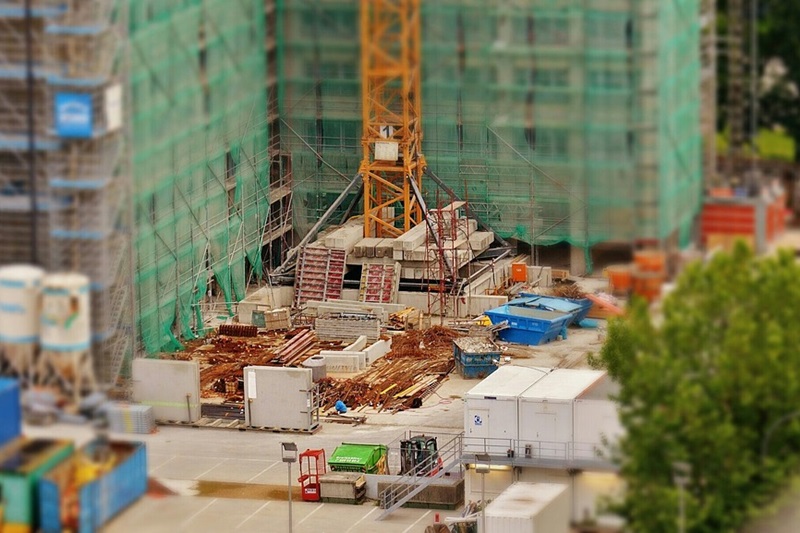To protect its citizens, assets, and sovereignty, any country must give safeguarding its national security the utmost priority. One of the most crucial elements of maintaining national security is the development and maintenance of a strong and sophisticated defensive system. However, governments are finding it more and more difficult to only rely on internal resources due to the complexity of modern combat and the quick improvements in technology. This is where reliable defence contractors play an important role. In this blog, we will delve into the significance of defence engineering contractors in bolstering national security and their contributions to strengthening the defence capabilities of nations.
The Changing Landscape of National Security
Over the past few decades, national security has experienced notable shifts, primarily influenced by rapid technological advancements and the escalating risks presented by diverse adversaries. Conventional modes of conflict have been supplanted by modern challenges like asymmetric threats, cyberwarfare, and terrorism, urging countries to consistently fortify their defensive systems. As a result, the defense landscape has evolved significantly, demanding constant vigilance and adaptability to effectively counter emerging threats. This evolving security environment demands proactive measures to safeguard against emerging risks and ensure the protection of states and their citizens. Government military agencies frequently struggle to keep up with the pace of innovation and the essential knowledge to manage new challenges in this changing environment. Defence engineering contractors step in to fill the gap in this situation by offering the specialized expertise and abilities needed to create cutting-edge technology.
The Role of Defence Engineering Contractors
Private businesses known as “defence engineering contractors” collaborate with government defence organizations to design, develop, produce, and maintain defensive systems and apparatus. These contractors add to the government’s authority by contributing a range of knowledge, tools, and expertise. At every stage of a defence project, from research and development to production, testing, and deployment, they are involved.
1.Research and Development
Research and development is one of the primary areas where defence engineering contractors excel. They are able to push the limits of technical innovation thanks to their investments in cutting-edge R&D facilities and their ability to draw top personnel. In order to find potential threats and vulnerabilities, these contractors conduct in-depth research, which inspires the creation of cutting-edge defence systems. In order to promote collaboration and knowledge exchange, they also work with governmental organizations, academic institutions, and other industry stakeholders.
2. Rapid Prototyping and Innovation
Defence engineering contractors also contribute to rapid prototyping and iterative design processes. They can react swiftly to new dangers and come up with creative solutions thanks to their agility. By combining their resources and knowledge, they can quicken the creation of innovative systems and technologies, giving the armed forces the best possible instruments to combat ever-evolving threats.
3. Cost Efficiency and Budget Optimization
Defence projects can often be financially demanding and subject to strict budget constraints. Defence engineering contractors bring efficiency to the process, leveraging their expertise in managing costs and optimizing budgets. Through their industry insights and supply chain networks, they can source materials and components at competitive prices, reducing overall project costs without compromising on quality.
Collaboration with Government Agencies
Effective collaboration between defence engineering contractors and government agencies is essential to ensure seamless integration and alignment with national security objectives. The relationship between the two is built on trust, shared goals, and a commitment to protecting the country’s interests. Key aspects of this collaboration include:
- Contracts and Agreements
Defence engineering contractors typically enter into contracts and agreements with government agencies to formalize their engagement. These agreements outline project objectives, timelines, deliverables, and other important aspects of the partnership. By establishing clear expectations, both parties can work together efficiently to achieve the desired outcomes.
- Intellectual Property (IP) and Security
Maintaining the protection of confidential information and intellectual property is crucial due to the sensitive nature of defence projects. Defence engineering contractors have experience handling sensitive information and abiding by stringent security procedures. These precautions make sure that the data shared throughout the collaboration is secure and stays out of the wrong hands.
- Transparency and Accountability
Transparency and accountability are crucial to the success of any defence project. Defence engineering contractors maintain open lines of communication with government agencies, providing regular updates on project progress, challenges, and milestones. This transparency fosters a strong working relationship and enables prompt decision-making in response to evolving circumstances.
Contributions to National Security
The contributions of defence engineering contractors to national security are multifaceted and have a profound impact on a country’s defence capabilities. Some key contributions include:
1.Technological Advancements
By investing in cutting-edge R&D and innovation, defence engineering contractors enhance the technological prowess of a country’s defence forces. Advanced weaponry, surveillance systems, communication networks, and cybersecurity solutions are just a few examples of the transformative technologies developed by these contractors.
2. Enhanced Operational Efficiency
The collaboration between defence engineering contractors and government agencies leads to increased operational efficiency within the armed forces. Improved equipment and systems enable quicker response times, streamlined logistics, and better coordination in critical situations.
3. Training and Support
The military personnel who use such technologies are frequently provided with training and support services by defence engineering firms. This guarantees that the military is skilled in making the most of the equipment’s capabilities and maximizing its usefulness on the battlefield.
4. Global Competitiveness
Countries that foster a strong partnership between their government agencies and defence engineering contractors gain a competitive edge on the global stage. By harnessing the expertise of the private sector, these nations can stand at the forefront of defence technology and exports, further bolstering their economic and geopolitical influence.

 by
by 


